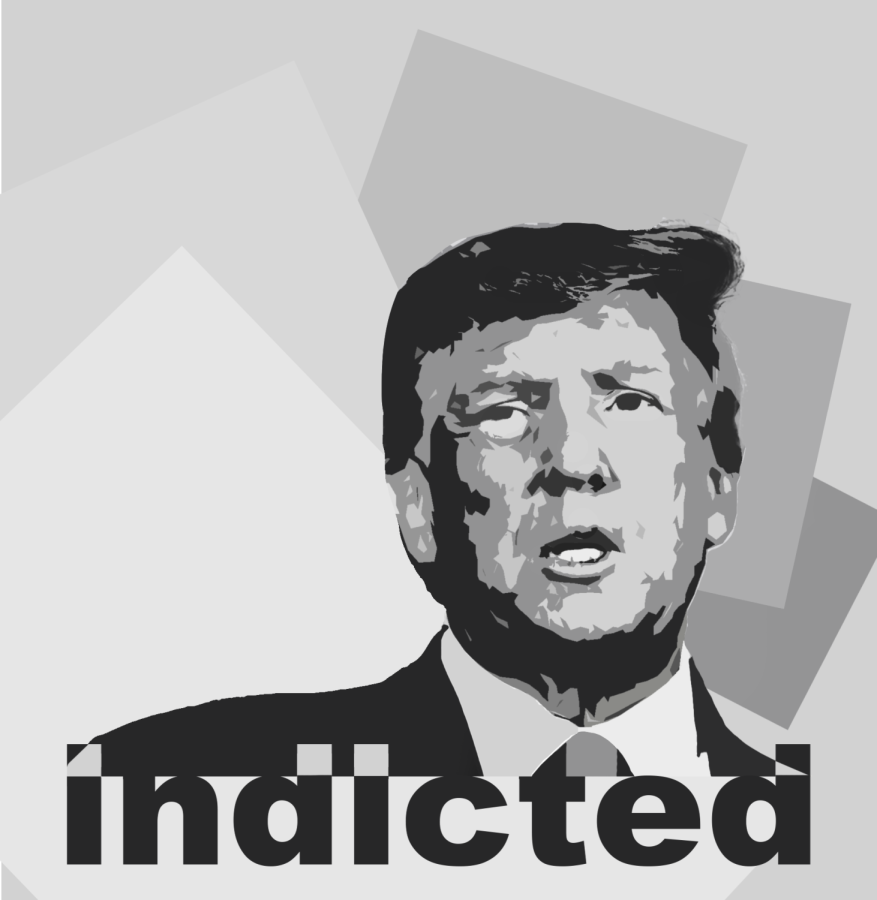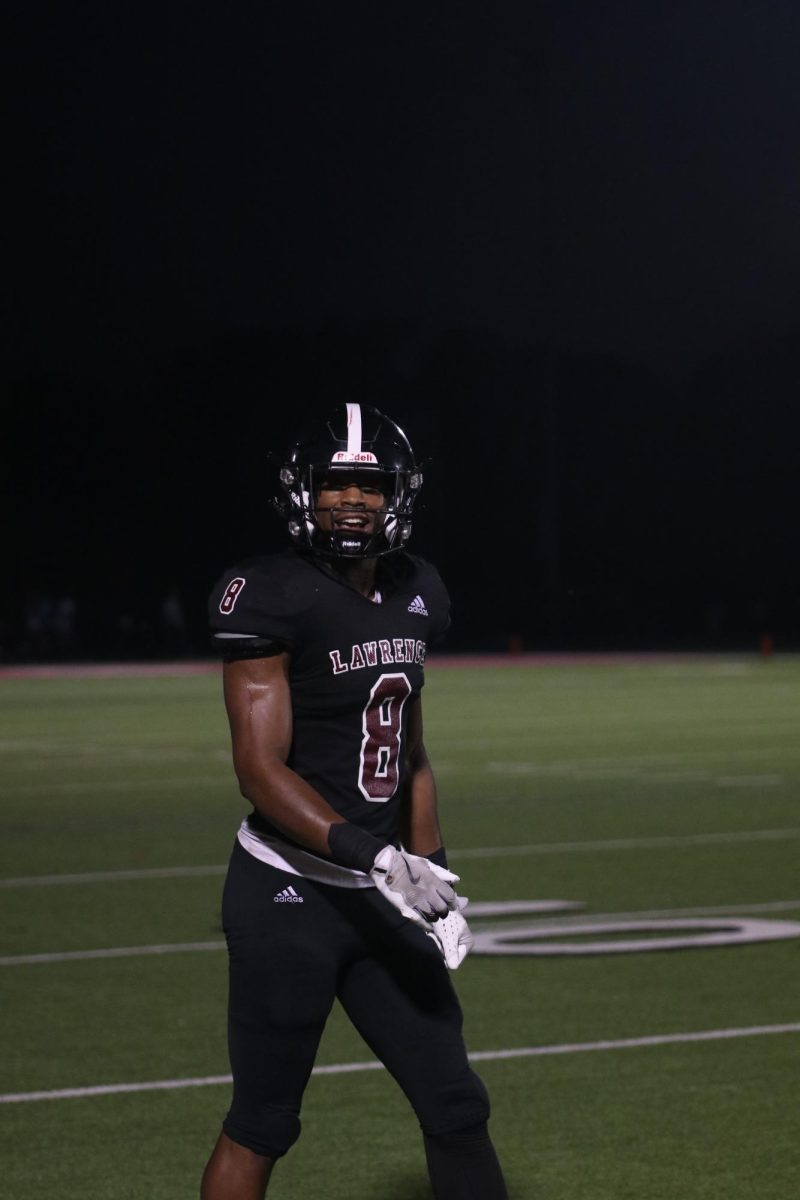Historic presidential indictment marks tense political time
May 8, 2023
Former president Donald Trump has become the first U.S president in history to be charged with a criminal offense. The precedent set by his indictment has massive ramifications for political discourse and history in the United States.
Trump faces 34 felony counts for falsifying business records in the first-degree in conjunction with his lawyer Michal Cohen. Funds were allegedly used as hush money to adult film star Stormy Daniels during his 2016 election campaign. Trump is not being charged for the payment to Daniels, but for allegedly reimbursing Cohen with mislabeled payments through the Trump Organization.
The Manhattan Grand jury voted to indict Trump on March 30, and the charges were filed with the New York supreme court by the end of the day. The former president pleaded not guilty to all charges.
Because Trump is the first President of the United States to be indicted, there is doubt surrounding what the outcome will be and U.S history teacher Valerie Schrag says that there is not enough information to draw any conclusions.
“What’s new about this is that there is no historical precedent, and I guess I would say personally, I’m kind of waiting to see how I, as a historian, should react,” Schrag said. “It’s a groundbreaking monumental headline, but where we go next is almost more important to me than the indictment itself.”
If convicted Trump could be facing a maximum of a four year prison sentence, which could impact his time in office if re-elected, however the criminal charges will most likely not affect Trumps from running for president, as the case against him his not expected to go to trial until 2024 when his presidential campaign will already be underway.
Regardless of if Trump is convicted or not, junior Brendan Symons thinks it’s important for students to see that everyone is equal in the eyes of the criminal justice system.
“It’s important that all people are held to account by the law,” Symons said. “And it just goes to show that no one is above the law in the United States.”
Although Trump is the first president to be officially indicted, he is not the first to engage in criminal activity rasing the question why is he the first to be charged? Schrag says this could be attributed to the new age of technology and social media.
“I do think the fact that we live in a world in which it’s very hard to have a private life through social media for public figures there,” Schrag said. “And of course, Donald Trump has been a public figure since the 1980s and enjoyed that, so perhaps it’s just there’s more evidence to analyze.”
With so much evidence accessible online, freshmen Sid Adams and Jack Bauch have dived head first into the data by creating a timeline from the perspective of both the prosecution and the defense as a project in their civics class, which gives them a broader perspective.
“I think it’s fair to give both sides a good explanation as to their reasonings, and then you debate about what is moral and immoral and what is correct and is not,” Adams said. “Of course that can be biased in some scenarios, that being said, I think that people should not only stick to one side.”
Being aware of what is going on in the nation’s politics is crucial for all students, but Schrag thinks it is especially important for students who are rising to the voting age.
“I want my students to understand that when they cast their ballots, they are choosing how they wish the nation, the state, the city to be governed,” Schrag said. “We pick our leaders. If we don’t like our leaders, we can remove our leaders through the constitutional process.”















